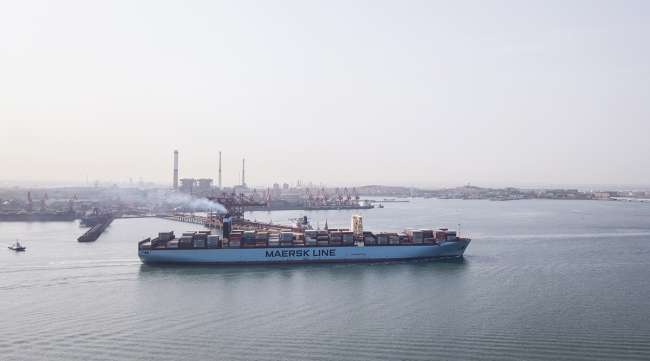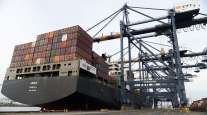World Trade, Safety at Risk From New Fuel Rule, Ocean Shipping Group Says

A group representing the vast majority of the world’s ship owners said world trade is at risk if issues surrounding new fuel rules aren’t resolved quickly, providing the starkest warning yet as to the potential impact of regulations that are due to enter into force in less than two years’ time.
From January 1, 2020, the world’s ships will need to use fuel that contains no more than 0.5% sulfur, or be fitted with a kit to remove the pollutant, under rules set out by the International Maritime Organization. The shift, announced in late 2016, requires significant investment in new projects among oil-refining companies that can sometimes take many years to plan and construct.
RELATED: Morgan Stanley says shipping revolution has oil headed for $90
“Unless a number of serious issues are satisfactorily addressed by governments within the next few months, the smooth flow of maritime trade could be dangerously impeded,” Esben Poulsson, chairman of the International Chamber of Shipping, said in an e-mail statement. ICS represents the world’s national shipowners’ associations, whose membership covers more than 80% of the global merchant fleet.
IMO is working with member countries, as well as with the refining and shipping industries to “identify and mitigate transitional issues so that ships may meet the requirement,” spokeswoman Natasha Brown said in response to the statement.
Widespread disruption to cargo movements could have even more far-reaching economic consequences since the shipping industry handles about 90% of world trade.
Refineries so far have offered mixed views about which fuels will prevail, according to Bloomberg surveys with dozens of owners of plants operating in Europe and Asia. There isn’t yet a single standard for a new fuel that’s been specified and agreed.
“At the moment, no one knows what types of fuel will be available or at what price, specification or in what quantity,” Poulsson said. “Unless everyone gets to grips with this quickly, we could be faced with an unholy mess with ships and cargo being stuck in port.”
The new rules are so far-reaching that they prompted Morgan Stanley to increase its oil price forecast because the bank anticipates a surge in demand from the shipping industry for so-called middle distillate fuels including marine gasoil.
At the moment, the shipping industry primarily uses bunker fuel, the residue left after more valuable products such as gasoline, jet fuel and diesel are made.
IMO, which is part of the United Nations, is insistent that the rules will proceed as planned and that there’s no scope for any kind of delay.
The lack of a global standard means there are safety issues, too, if ships take incompatible fuels on board, Poulsson said.
“Governments, oil refiners and charterers of ships responsible for meeting the cost of bunkers all need to understand that ships will need to start purchasing compliant fuels several months in advance of 1 January 2020,” he said.




